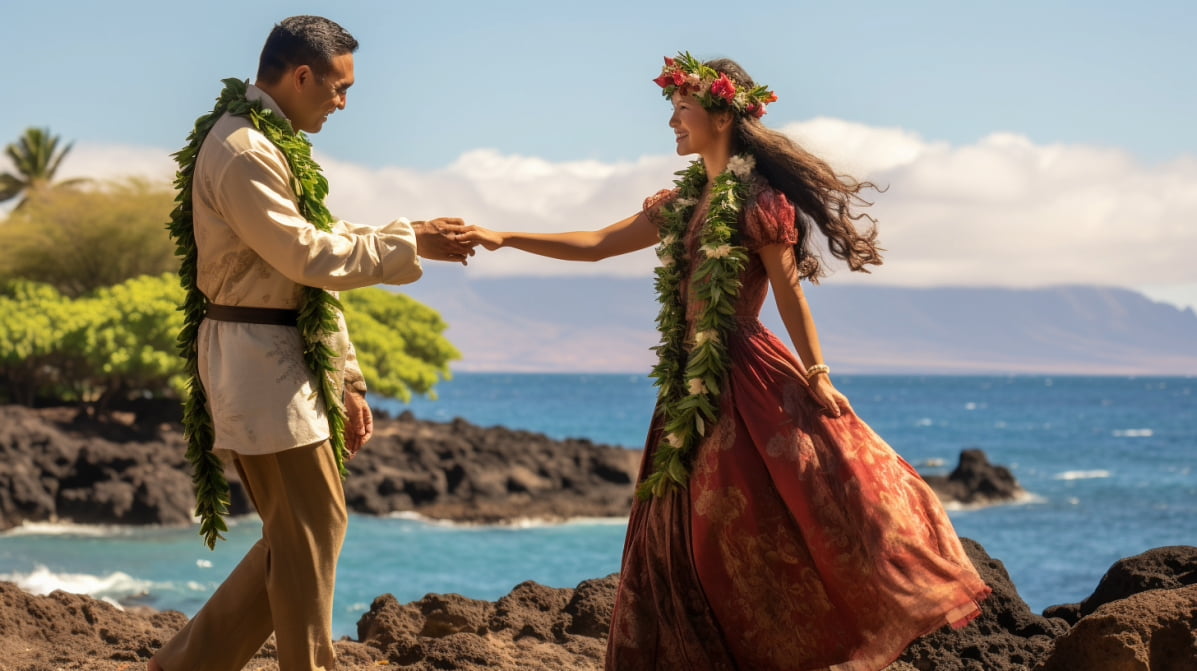Respectful Travel in Maui: Embracing Cultural Sensitivity 🌺
Maui, with its stunning natural beauty and diverse culture, is a popular travel destination in Hawaii. However, it is essential to recognize and respect the cultural norms in Maui while enjoying your trip. As a visitor, you can show your appreciation for the local culture by adhering to certain etiquette guidelines.
Understanding the customs and traditions of Hawaiian culture is the first step towards respectful travel in Maui. From greetings to gift-giving, there are various cultural norms to be aware of. By taking the time to learn about and respect these customs, you can enhance your experience and show your appreciation for the local community.
This article will provide essential tips for respectful travel in Maui, including information on cultural etiquette, dos and don’ts, and cultural sensitivity. By following these guidelines, you can ensure a positive experience in Maui and foster meaningful connections with the locals.
Key Takeaways
- Respect the cultural norms in Maui to show appreciation for the local community
- Understanding the customs and traditions of Hawaiian culture is crucial for respectful travel
- Adhering to etiquette guidelines can enhance your experience in Maui and foster meaningful connections
Understanding Hawaiian Culture and Customs
Maui is a place with a rich culture and tradition that visitors should respect and appreciate. Understanding the customs and values of the Hawaiian people can help travelers navigate the island with grace and sensitivity. Here are some essential aspects of Hawaiian culture to keep in mind:
Greetings
In Hawaii, greeting someone is more than just saying hello. It’s an expression of respect and connection. Visitors should learn to say key phrases such as “Aloha” (hello), “Mahalo” (thank you), and “A hui hou” (until we meet again). It’s also essential to learn how to give a proper Hawaiian greeting, which involves hugging or kissing on the cheek.
Gift-giving
Giving gifts is a common practice in Hawaii, and it’s essential to follow the right etiquette. It’s customary to bring a small gift for your host or hostess when visiting someone’s home. Popular gifts include flowers, food, and small souvenirs. When giving or receiving a gift, always use your right hand, and never open a gift immediately.
Respecting Sacred Sites
Hawaii is home to many sacred sites, and visitors must respect them. It’s important to learn about these sites before visiting and follow the proper guidelines for behavior. This includes not removing anything from the sites, not touching anything, and not walking on any forbidden areas.
By understanding these key aspects of Hawaiian culture and customs, visitors can show respect and appreciation for the local people and their heritage.
Dos and Don’ts in Maui: Etiquette Tips
Maui is a culturally rich destination that requires visitors to be respectful and mindful of local customs. Here are some dos and don’ts to follow:
Do Dress Appropriately
When in Maui, dress comfortably but respectfully. Beachwear is accepted when on the beach, but it is not recommended for other public places. Additionally, it’s important to cover up while visiting religious or sacred sites.
Do Respect Nature
Maui is home to some of the world’s most beautiful natural attractions, and visitors must respect and preserve them. Avoid littering or vandalizing any natural sites and always follow designated hiking trails.
Do Behave Courteously in Public Spaces
Maui’s citizens are courteous and friendly, and visitors must reciprocate the same behavior. Respect personal space, avoid shouting or being disruptive while in public spaces, and be mindful of other people’s privacy.
Do Learn Basic Hawaiian Phrases
Learning basic Hawaiian phrases can help you connect with locals and show your respect for the culture. Start with greetings like “Aloha” (hello) and “Mahalo” (thank you).
Don’t Touch Sacred Sites
Maui has several sacred sites that visitors should not touch or disturb. Be respectful of these sites and avoid leaving any marks or trash that can deface their beauty.
Don’t Enter Private Property
Private property is off-limits for visitors, and it would be polite to respect boundaries set by locals. Avoid trespassing, and do not enter areas marked as “No Trespassing” or “Private Property.”
Don’t Take Anything from the Beach
Maui’s beaches hold special cultural significance, and visitors should not take anything from them. Avoid removing sand, rocks, or any other natural material from the beach, as it is considered disrespectful to the culture.
By following these dos and don’ts, travelers can show their respect for the local culture and enjoy a memorable trip to Maui.
Dos and Don’ts in Maui: Etiquette Tips
When visiting Maui, it is essential to be mindful of local customs and traditions to show respect and appreciation for the culture. Here are some dos and don’ts to follow:
Do dress appropriately
Maui’s warm weather may be tempting, but remember to dress modestly when visiting places of worship or sacred areas. Cover your shoulders and legs when entering these spaces out of respect for the Hawaiian culture.
Don’t touch or remove anything from sacred sites
The Hawaiian culture places great importance on their sacred sites, and visitors should be respectful of them. Do not touch or remove any natural or cultural resources found in these areas, such as stones, plants, or artifacts.
Do greet locals with aloha
The Hawaiian word “aloha” means love, affection, and peace. Use it to greet locals and show them respect. It is also customary to offer a lei, a traditional Hawaiian garland, to show your appreciation for their hospitality.
Don’t litter or damage the environment
Maui is known for its pristine beaches and natural beauty. To preserve this, visitors should ensure they dispose of their trash properly and avoid damaging any wildlife or natural resources.
Do take off your shoes
It is customary to remove your shoes before entering someone’s home or any indoor space in Hawaii. This is a sign of respect and helps to keep the home clean.
Don’t refer to locals as “natives” or “Hawaiians”
The term “native” can be seen as disrespectful to some members of the Hawaiian community, so it is best to avoid using it. Similarly, not all locals identify as “Hawaiians,” so it is best to ask how they prefer to be addressed.
Do participate in cultural activities
Maui has a rich cultural heritage, and visitors should take advantage of opportunities to learn and engage with the local culture. Attend a traditional hula performance, try your hand at lei-making, or take a cultural tour to gain a deeper understanding of the Hawaiian way of life.
Don’t point with your fingers
In Hawaiian culture, it is considered impolite to point with your fingers. Instead, use your chin or eyebrows to indicate something or gesture with your whole hand.
By following these etiquette tips, you can ensure that your trip to Maui is respectful and enjoyable for both you and the local community.
Cultural Sensitivity in Everyday Interactions
When visiting Maui, it is essential to be mindful of cultural sensitivity in everyday interactions. Whether it’s speaking to locals or participating in cultural activities, understanding and respecting Hawaiian customs and traditions is crucial.
Addressing Locals Respectfully
One of the most important aspects of cultural sensitivity is knowing how to address locals respectfully. In Hawaiian culture, elder members of the community are often referred to as “aunties” and “uncles” out of respect. It is important to use these terms when speaking to elders or those in positions of authority.
Navigating Dining Situations
When dining in Maui, it’s essential to be aware of local customs and etiquette. For example, it’s considered impolite to pass food with chopsticks, as this is associated with funerals in Hawaiian culture. Additionally, it’s customary to remove your shoes before entering someone’s home, as a sign of respect.
Participating in Cultural Activities
Participating in cultural activities is a great way to learn about and engage with the local community in Maui. However, it’s important to approach these activities with respect and understanding. For example, during a Hawaiian hula performance, it’s inappropriate to laugh or talk loudly.
Conclusion
In conclusion, practicing cultural sensitivity in Maui enriches your island experience and fosters meaningful local connections. Be mindful when interacting with residents, dining, and participating in cultural events. Approach situations with grace, understanding, and respect.
Embracing these cultural intricacies demonstrates your appreciation for Maui’s heritage. Gain deeper rewards from your travels by honoring local values. Let cultural awareness guide your journey.
Prepare for an eye-opening cultural immersion in Maui. Download the Maui Travel Guide Maui Travel Guide for tips on respectful interactions and traditions. Discover Maui’s heart.







